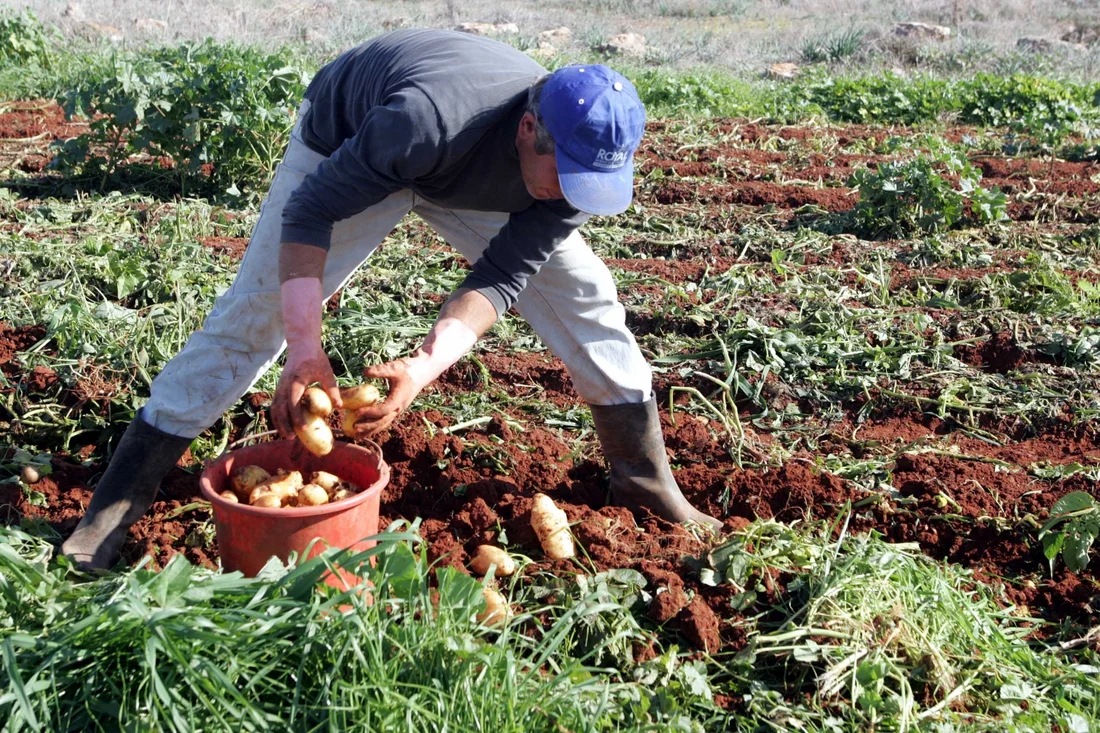Potato farmers are demanding sweeping changes to compensation rules for extreme weather, warning that prolonged drought has pushed many to the brink of survival.
Farmers from across Cyprus are set to meet on Wednesday to discuss how to tackle severe losses caused by a relentless lack of rain.
Producers say their costs have soared because they can no longer rely on cheaper water supplies. Instead, they are forced to drill wells, which is far more expensive.
Farmers’ representative Andreas Karyos said many are now unable to achieve the planting targets needed for their business to stay viable.
“Some farmers simply cannot cover the decares they declare for their required production,” he said.
The situation is especially dire for younger farmers. According to Karyos, new entrants to the sector are struggling to meet production quotas needed to secure subsidies. Failing to reach these targets means they not only lose crucial financial support but also risk fines.
“For example, a young farmer might join a scheme for 100 decares,” Karyos explained.
“To receive subsidies, which help them continue potato farming and buy tractors or machinery, they must plant potatoes on at least 60 decares and grow their production every year. But without water, it’s impossible to drill more wells.”
Older farmers, too, are under strain. They face lower harvests and falling incomes at a time when costs are climbing. Karyos warned that the small number of potatoes they can now grow is far from enough to sustain a living.
“Those few potatoes aren’t sufficient to provide a decent income that allows them to remain in the profession,” he said.
Beyond the immediate financial squeeze, farmers argue that current compensation rules for weather disasters leave many without help.
The criteria, they say, exclude farmers who have suffered losses due to drought.
Karyos said the sector faces an increasingly bleak future if dry conditions continue through the end of the year.
He stressed that one of the decisions likely to emerge from tomorrow’s meeting is to formally request state support to cover lost income.







Click here to change your cookie preferences